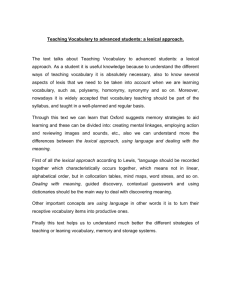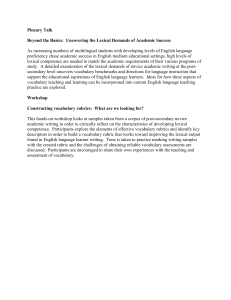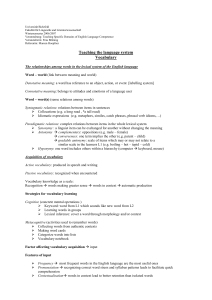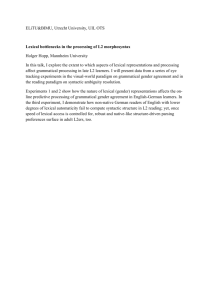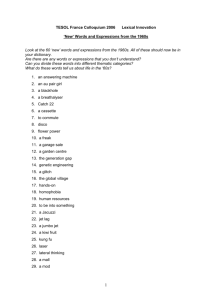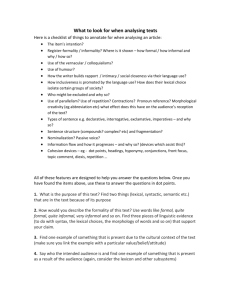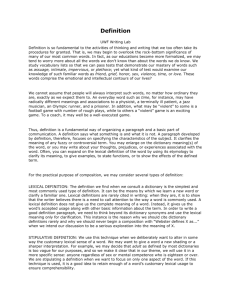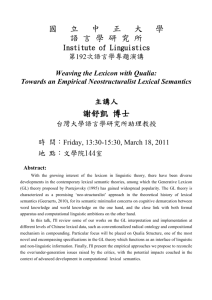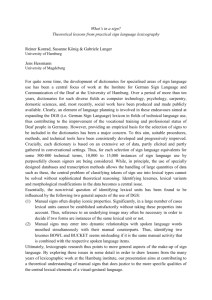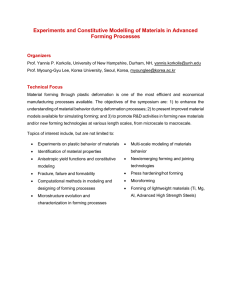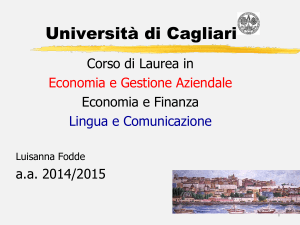The Mechanisms and Processes of Lexical Innovation
advertisement
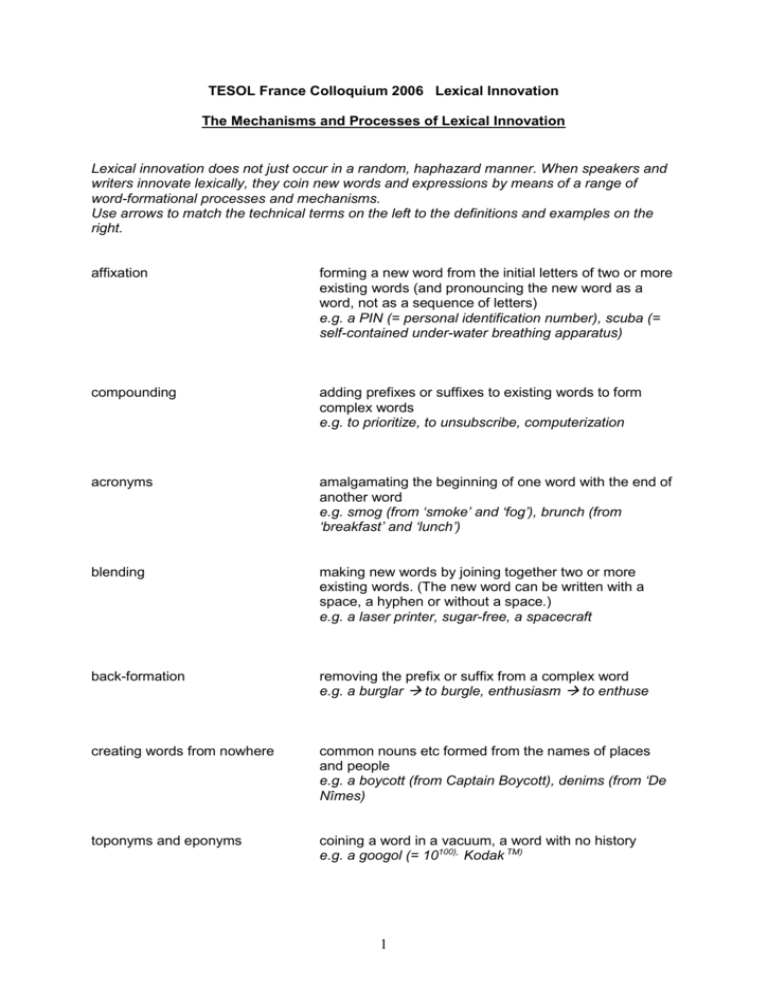
TESOL France Colloquium 2006 Lexical Innovation The Mechanisms and Processes of Lexical Innovation Lexical innovation does not just occur in a random, haphazard manner. When speakers and writers innovate lexically, they coin new words and expressions by means of a range of word-formational processes and mechanisms. Use arrows to match the technical terms on the left to the definitions and examples on the right. affixation forming a new word from the initial letters of two or more existing words (and pronouncing the new word as a word, not as a sequence of letters) e.g. a PIN (= personal identification number), scuba (= self-contained under-water breathing apparatus) compounding adding prefixes or suffixes to existing words to form complex words e.g. to prioritize, to unsubscribe, computerization acronyms amalgamating the beginning of one word with the end of another word e.g. smog (from ‘smoke’ and ‘fog’), brunch (from ‘breakfast’ and ‘lunch’) blending making new words by joining together two or more existing words. (The new word can be written with a space, a hyphen or without a space.) e.g. a laser printer, sugar-free, a spacecraft back-formation removing the prefix or suffix from a complex word e.g. a burglar to burgle, enthusiasm to enthuse creating words from nowhere common nouns etc formed from the names of places and people e.g. a boycott (from Captain Boycott), denims (from ‘De Nîmes) toponyms and eponyms coining a word in a vacuum, a word with no history e.g. a googol (= 10100), Kodak TM) 1 initialising forming a new word by cutting off the end (or more rarely, the beginning) of another word e.g. advertisement advert, suburb ‘burb borrowing forming a new word from the initial letters of two or more existing words (and pronouncing the new word as a sequence of letters) e.g. the IRA ( the Irish Republican Army), an SUV ( a sports utility vehicle) conversion incorporating words and expressions from other languages e.g. a manoeuvre, a tsunami, a kindergarten, a robot onomatopoeia using a word as a different part of speech, e.g. a noun as a verb, without any change of form e.g. to access, to surface, to text (= to send an SMS) clipping creating a word by repeating another word (sometimes exact repetition, sometimes with a change to the beginning or middle of the word) e.g. a no-no, helter-skelter, to dilly-dally meaning shifting creating words which imitate sounds in the outside world e.g. to hiss, a splash, to hiccup reduplication changing or expanding the meaning of an existing word e.g. a bully’ used to mean a ‘lover’, ‘hopefully’ used to only mean ‘in a hopeful manner’ © Dennis Davy (University of London Institute in Paris) 18 November 2006 2 d.davy@ulip.lon.ac.uk
